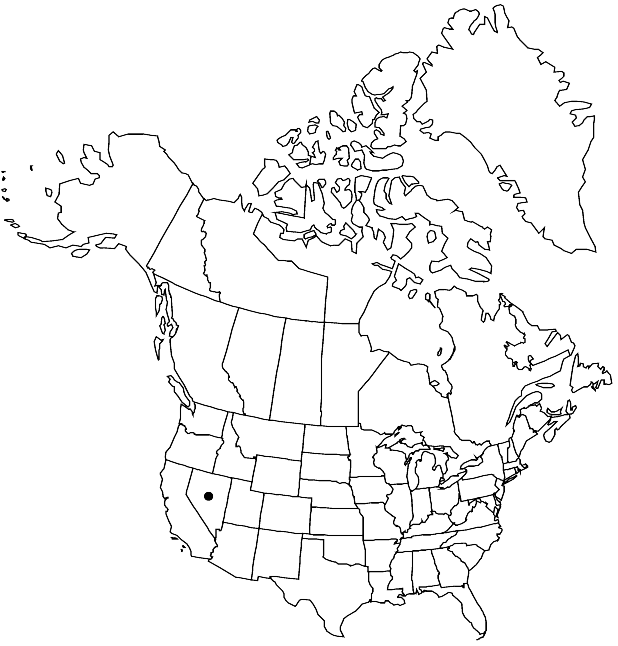Difference between revisions of "Draba pennellii"
J. Arnold Arbor. 64: 502. 1983.
FNA>Volume Importer |
imported>Volume Importer |
||
| Line 6: | Line 6: | ||
|place=64: 502. 1983 | |place=64: 502. 1983 | ||
|year=1983 | |year=1983 | ||
| + | }} | ||
| + | |special_status={{Treatment/ID/Special_status | ||
| + | |code=E | ||
| + | |label=Endemic | ||
| + | }}{{Treatment/ID/Special_status | ||
| + | |code=C | ||
| + | |label=Conservation concern | ||
}} | }} | ||
|basionyms= | |basionyms= | ||
| Line 46: | Line 53: | ||
|publication title=J. Arnold Arbor. | |publication title=J. Arnold Arbor. | ||
|publication year=1983 | |publication year=1983 | ||
| − | |special status= | + | |special status=Endemic;Conservation concern |
| − | |source xml=https:// | + | |source xml=https://bibilujan@bitbucket.org/aafc-mbb/fna-data-curation.git/src/bb6b7e3a7de7d3b7888a1ad48c7fd8f5c722d8d6/coarse_grained_fna_xml/V7/V7_448.xml |
|tribe=Brassicaceae tribe Arabideae | |tribe=Brassicaceae tribe Arabideae | ||
|genus=Draba | |genus=Draba | ||
Revision as of 23:57, 27 May 2020
Perennials; (cespitose, often forming mats); caudex branched (elongated, with persistent leaf bases, branches sometimes terminating in sterile rosettes); sometimes scapose. Stems unbranched, (0.15–)0.3–0.7(–1) dm, pubescent proximally, trichomes simple and spurred, 0.4–0.8 mm, and short-stalked, 2–4-rayed, 0.1–0.4 mm, (sometimes with simple trichomes distally). Basal leaves subrosulate; sessile; blade oblanceolate to oblong, (0.3–)0.5–0.8 cm × 1–3 mm, (base ciliate, trichomes simple, 0.2–0.8 mm), margins entire, (not ciliate), surfaces usually pubescent, with stalked, (2–)4 (or 5)-rayed trichomes, 0.2–0.5 mm, adaxially sometimes glabrate, or primarily with simple trichomes, 0.3–0.8 mm. Cauline leaves (0 or) 1–4; sessile; blade ovate to oblong, margins entire, surfaces pubescent as basal. Racemes (3–)7–15(–20)-flowered, ebracteate, elongated in fruit; rachis not flexuous, pubescent as stem. Fruiting pedicels divaricate-ascending to ascending, straight, 3–10 mm, pubescent, trichomes simple and short-stalked, 2–4-rayed, (0.1–0.4 mm). Flowers: sepals ovate to oblong, 2–3 mm, pubescent, (trichomes simple, with fewer, short-stalked, 2-rayed ones); petals white, obovate, 3.5–6 × 1.5–2.8 mm; anthers oblong, 0.5–0.6 mm. Fruits broadly or, rarely, narrowly lanceolate to elliptic or ovate, plane or slightly twisted, flattened, (4)5–8(–10) × 2–3.2 mm; valves (each with distinct midvein), pubescent, trichomes simple and short-stalked, 2-rayed, 0.08–0.2 mm; ovules 12–24 per ovary; style (0.7–)1–1.8(–2.1) mm. Seeds oblong, 0.9–1.3 × 0.7–1 mm. 2n = 32.
Phenology: Flowering May–Jul.
Habitat: Rock outcrops and talus slopes in pinyon-juniper, sagebrush, mountain shrub, and mixed conifer communities
Elevation: 1900-3500 m
Discussion
Of conservation concern.
Draba pennellii is known from White Pine County in east-central Nevada. It is easily distinguished from other white-flowered species in the region by its elongated, many-branched caudices, long styles, usually few-leaved or, rarely, leafless flowering stems, and distinct midvein on fruit valves.
Selected References
None.
